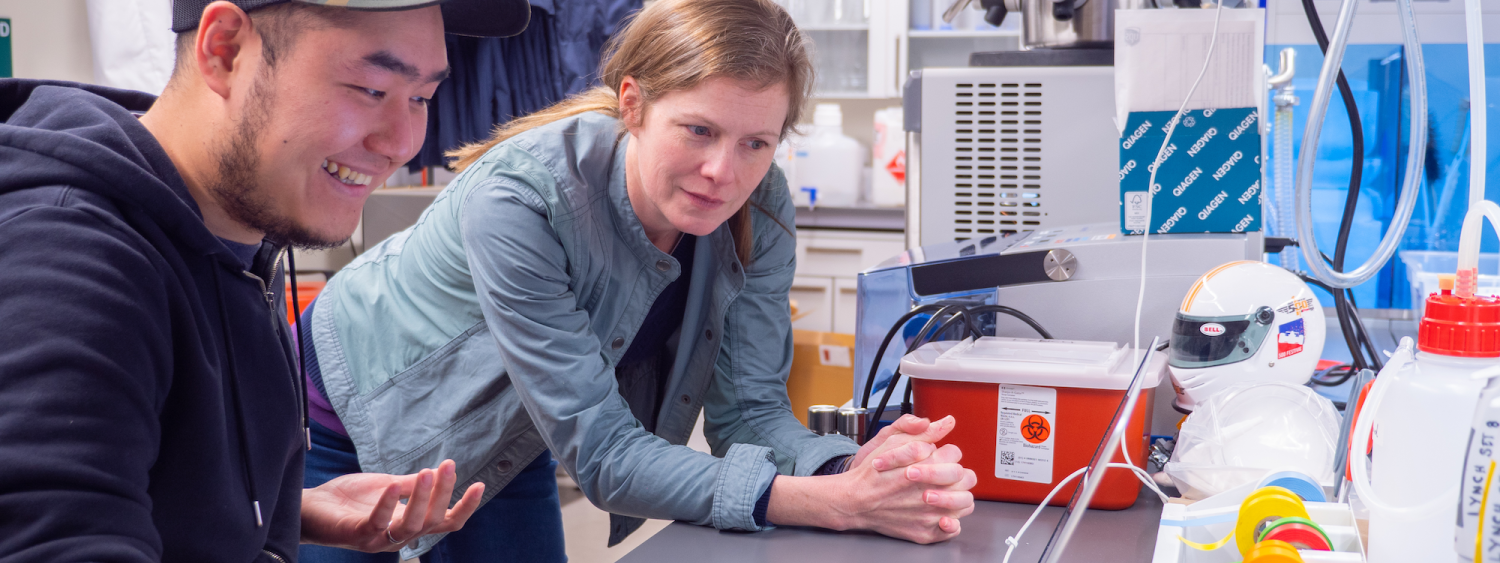Minor Program

The Biomedical Engineering Minor is open to undergraduate students who are interested in an exciting, multidisciplinary field that lies at the interface of medicine, biology and engineering. Students rostered outside of the College of Engineering and Applied Science may earn the minor as long as the meet the requirements below.
Biomedical engineers use engineering principles to analyze and solve problems in biology and medicine, providing an overall enhancement to healthcare. At the same time, biomedical engineers employ concepts learned from biology and medicine to generate new engineering designs.
Current research in biomedical engineering focuses on innovative areas such as biomechanics and mechanobiology; medical devices; imaging and diagnostics; and therapeutics.
Admission Process & Requirements
Selected admitted students are invited to participate in the minor. Otherwise, admission to the minor is by application. Students must have a minimum CU cumulative GPA of at least 2.5 to apply. Students can apply at any time and will be notified of their admission status on a rolling basis.
A minor in Biomedical Engineering can be earned in conjunction with any CU Boulder major degree, except for BS degree in Biomedical Engineering.
Grade Requirements
A grade point average (GPA) of 2.000 or better is required in the courses that are used to satisfy the requirements for this minor. Each individual course that is counted towards these degree requirements must be passed with a D- or better. Note, however, that a C- or better is required in all prerequisite courses to move on to a subsequent course.
Completing the Biomedical Engineering Minor
The College of Engineering and Applied Science requires confirmation of Biomedical Engineering Minor completion. Please email biomed-minor@colorado.edu for final approval.
Questions or Degree Audit Updates?
Please email biomed-minor@colorado.edu.
Course Requirements
To receive the minor, complete 18 credit hours by taking the required gateway course, one focused elective and 12 elective credit hours.
- BMEN 2000: Introduction to Biomedical Engineering (3 credit hours): prerequisites include Biology (CHEN 2810, EBIO 1210, or MCDB 1150) and Chemistry (CHEN 1201, CHEN 1211, CHEM 1113 or MCEN 1024).
- This course utilizes Matlab. Prior experience using Matlab is ideal. Students without Matlab experience may need to spend additional time learning Matlab to complete certain assignments. Resources will be made available.
- 15 elective credit hours - here are additional guidelines regarding the focus elective and electives requirements:
- At least one focus elective (from the list below)
- At least 12 credit hours must be upper-division (3000 or higher level)
- 6 credit hours must be taken in engineering courses (including Computer Science). Here is a link to submit enrollment requests for department restricted courses.
- Up to 9 credit hours can be taken outside of engineering (i.e. IPHY, MCDB, PHIL)
- Relevant Independent Study coursework can be petitioned
- 5000-level courses are allowed where undergraduate students are eligible to enroll
- Prior coursework may be transferred from other institutions with approval.
- At least 9 credit hours need to be taken on the CU-Boulder campus- at least 6 credit hours of which must be at the upper-division level.
For more information
Email us at:
biomed-minor@colorado.edu
An independent study is a collaboration between a student and a faculty member on a special project that provides the student with a learning experience. An independent study may also fill an academic need of importance to the student that cannot be filled by regular course offerings. Independent studies are opportunities to earn credit for learning outside the normal lecture and laboratory class structure. Learn more.

